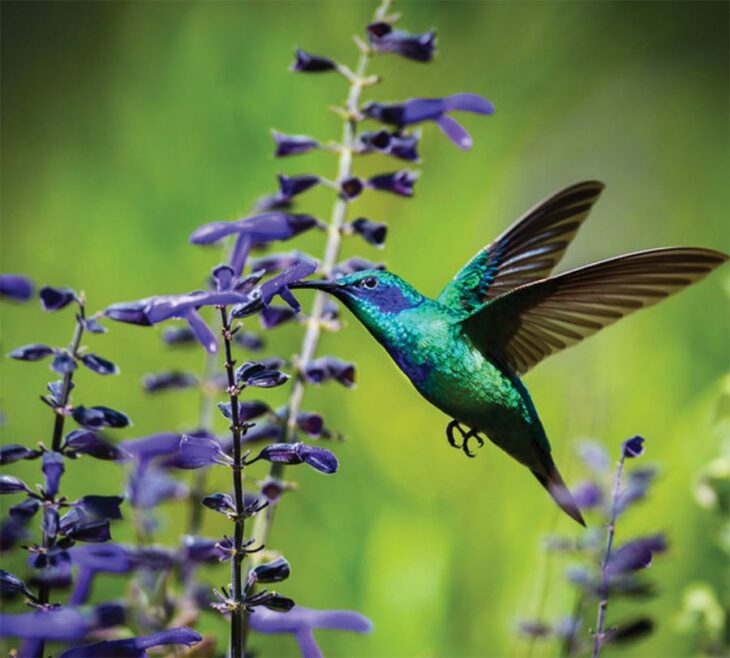Who doesn’t love watching the antics of the many birds that populate Mississippi gardens? Among the most adored are hummingbirds. Luckily for us, we often see the ruby-throated hummingbird, but did you know there are more than a dozen different species west of the Mississippi? Sightings of rufous, black-chinned and calliope species have been reported along the Gulf Coast.
Hummingbirds are migratory, and you will see more of them during March and April as they head north and again in September when they return south. It is possible to have hummingbirds in your yard all summer, although they have strong instincts that lead them to move on at the “right” time.
Here are some tips to make your yard a hummingbird favorite:
• Provide plants that produce nectar. Ideal plants have red or orange tubular flowers. This shape holds large amounts of the desired food at its base. Single-flowered blossoms have more nectar than double ones. Flowers of these plants need to be plentiful from March through October, and although nectar is an adult food, parents feed insects to their young until they leave the nest.
• Don’t place plants too close to a window to prevent accidents. Also, be careful about using pesticides, as they can destroy the insects vital to the birds and their young and may contaminate the nectar.
• Use artificial feeders to supplement major food sources. Use one-quarter cup sugar to one cup water for the food; do not use red coloring.
Make sure to clean the feeder and change the sugar water at least weekly. Use a bottle brush and vinegar or a weak bleach solution to clean. Do not use soap, as it may leave a residue that can be harmful to the birds.
• Make your yard “bird friendly” by attracting other birds to your landscape. Although the Audubon Society maintains that there’s no ideal yard, using native plants will provide the most food and shelter for all birds and wildlife.
• When adding new plants to your yard, consider potential food, shelter and nesting. Plants that provide nuts, seeds or fruits, as well as nectar, will attract wildlife and enhance your bird and wildlife viewing opportunities year around. Adding a water source will fulfill a basic need for birds.
Overall, plan your yard purposefully. Audubon At Home (www.audubon.org) offers a database of plants and trees that are valuable to specific bird species.
Happy gardening and bird watching!
Darlene Underwood is a Mississippi master gardener, national accredited flower show judge and Garden Clubs of Mississippi third vice-president. Reach her at darlene.underwood@att.net.



